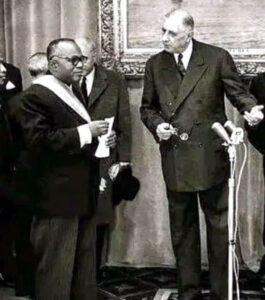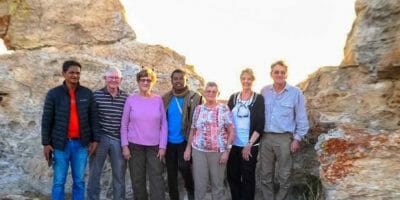
During the First Republic, young graduates dreamed of serving the state. In the regions, we called the profession “Civil servant ». Thus, the rural people sold everything they had – land, zebus – to achieve their dearest wish: ” that my son wears the uniform of a bureaucrat ». This uniform was none other than the costume-tie.
Colonial heritage. To distinguish themselves, the colonized, modeled by Western culture, were seduced by the presence of the auxiliaries of foreigners. The pace, the way of speaking, quite authoritarian, stung curiosity. This desire then generated social rivalry. Being a “state civil servant”, regardless of the profession, was synonymous with success and ascending mobility. Consequently, the young people in the campaign left their locality hoping to obtain an exceptional position. The historian specializing in the history of education in western Madagascar affirms: ” Between 1960 and 1980, more than 1,000 children of peasants from the Sofia region joined schools. The greatest number was moving towards technical professions and teaching. In addition, the rise of Philibert Tsiranana in power induced a particular influence, especially among the Tsimihety. The father of independence symbolized quality and excellence.
Escalation. The Second Republic of Didier Ignace Ratsiraka intensified the love of education. Its policy, aimed at enhancing education by building primary schools in each district, colleges in the municipalities as well as a university in each province, now guaranteed accessibility to education. In addition, the alliance with the countries of Eastern Europe allowed students to obtain scholarships in Moscow, kyiv, Belgrade or Bucharest. After completing their studies, these graduates held key positions between 1985 and 2000.
Business world. Over time, this point of view evolved due to the meager salary allocated to Mpiasam-Panjakana. In addition, the index grid remained unchanged while poverty was gaining ground. In parallel, non-governmental organizations working in various socio-economic fields, including health and the environment, were implanted in rural areas, many offering a satisfactory salary. From then on, young graduates turned there. From now on, the private sector appeared more attractive than public administration, often deemed not very rewarding.
“” There is no motivation, except only a small salary increase at the start of the year “, Note Fredo Randriamahalina, human resources manager in a private company in the capital. State employees, however at the service of their fellow citizens, saw their shirts wear out, their suit is struggling and their badly adjusted moccasins.
The advent of entrepreneurial culture completely changed the situation. “” We have always been trained to work at sole. Now we are completely convinced that creating your own business is effective. I find that this is another way of contributing to the economy of our country », Specifies the young entrepreneur Berthela Fety-Anandra. The 2020 health crisis also served as a lesson: during confinement, the salary of private sector employees was severely amputated while civil servants continued to perceive their entirety.
Ultimately, although the old dreams collapsed over time, ambition persists. If some have turned the page, others still believe it. In other words, the image of a son dressed in a folded shirt, the hand decorated with a watch holding a case, always seduces, whatever the profession.
ISS HERIDINY










